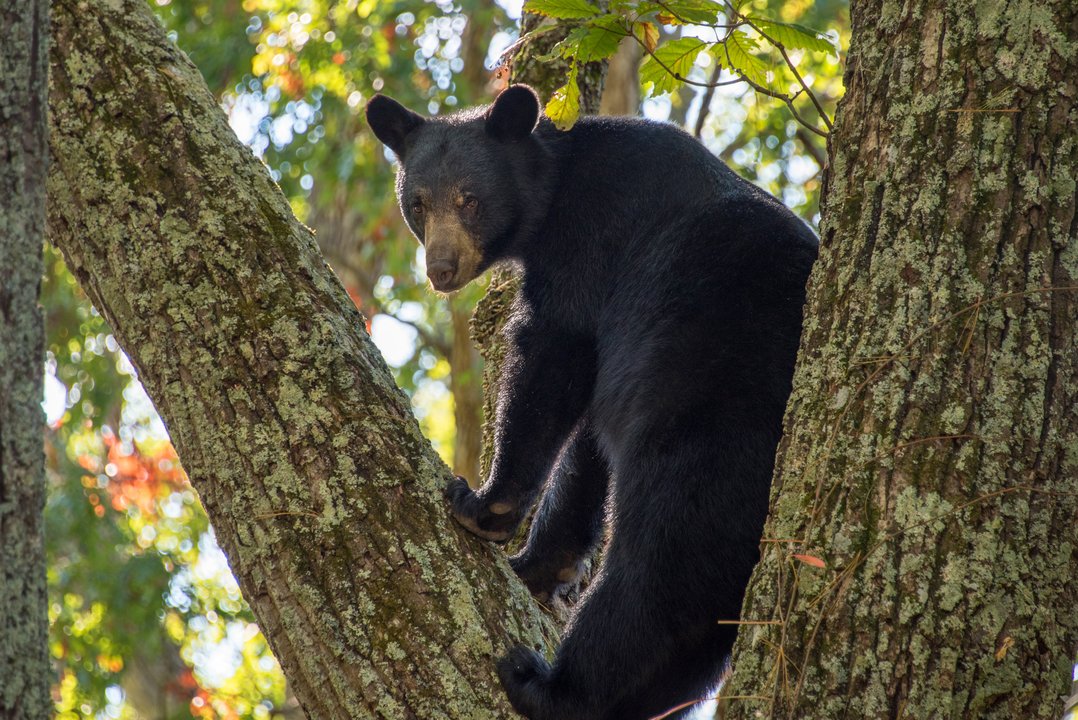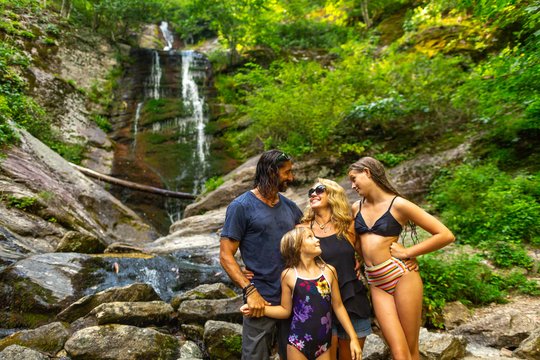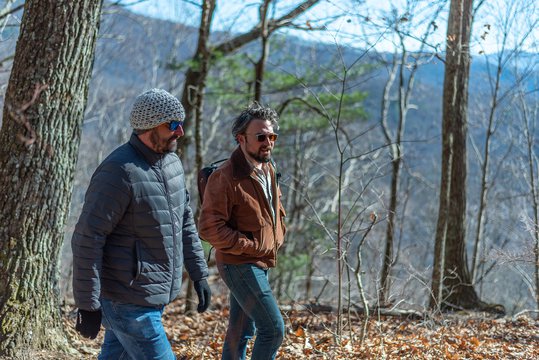When spring arrives, very hungry black bears come out of hibernation. It’s also the time when outdoor enthusiasts flock to the Blue Ridge Mountains to hike, camp, picnic, fish, and other wilderness activities. While this combination can lead to a dangerous situation, these pointers provide all the information you need to stay safe around our bear neighbors.
What is a black bear?
The bears you encounter in the Blue Ridge Mountains are black bears. They are mostly black with a long, brown snout, small eyes, and rounded ears. Black bears rarely become aggressive when encountered, but it’s best to avoid these chance meetings and to know what to do if they happen.
Precautions to avoid an encounter
- Stay alert! Don’t wear earbuds - you can hear a bear coming and make periodic noises to alert a bear to your presence. These sounds don’t have to be loud; speak in a calm voice frequently so a bear can distinguish you as human and not prey.
- Explore with at least one other person, keep the group together, and keep children close by and visible.
- Always keep your dog on a leash! This the law and it's a best practice.
- Carrying bear spray is always a good idea in bear country; keep it in an easily accessible place. It is the most effective way to deter an aggressive bear and works effectively when sprayed in their direction, ideally 20 – 30 feet away. Give a 1–2 second blast, aiming just slightly down from the bear’s head. Remember you only have about 7–9 seconds of spray in each can. Bear spray does not work like insect repellent, so don’t bother spraying it on your clothes, tent, or gear. Practice with it in advance before an encounter so you know how to use it when you need it.
What if I have an unexpected encounter with a black bear?
- First, never approach a bear, or try to get close for a photo. They will charge you if they feel threatened.
- Also do not run or take off on your bike, as doing so may trigger the animal’s prey drive!
- If a black bear comes within your proximity but isn’t aware of you, back away slowly and leave the area.
- If a bear sees you, immediately pick up any small children and dogs (if you can.) Speak to the bear calmly as you slowly back away. Do not make eye contact, as they may interpret it as an act of aggression.
What do I do if a bear approaches me?
- If a bear starts to follow you as you back away, stop and stand your ground. Only when the bear stops their approaches should you resume backing away.
- If they continue toward you, make yourself look bigger so they know you’re not an easy target. Get up on a stump or rock to increase your height. If you have a jacket, spread it out over your outstretched arms above your head. Wave your arms or grab a nearby branch and wave it around. Yell ”Hey bear!” repeatedly and as loudly as you can.
- This is also the time to get your bear spray out of its holster and remove the safety latch.
What do I do if they continue toward me?
- If the bear continues in your direction, stand your ground and continue to intimidate them by making yourself look larger and yelling. Clash pots and pans together, bang sticks, or clap your hands loudly.
- If they don’t stop, spray your bear spray directly at them. (Wait until they are at least 30 feet away.)
What do I do if a bear charges me?
If they attack you, never play dead! This does not work with black bears. You have no choice but to fight back. Use your knife If you have one and kick and punch as hard as you can. Anything can be a makeshift weapon: rocks, sticks, backpack, even binoculars.
How do I avoid bears when camping?
Unfortunately, bears have come to associate humans with food, so you need to be extra cautious. First, select the right campsite. It should not be close to natural food sources or near dense brush. Pitch your tent upwind from your cooking and food storage area, which should be at least 300 feet away.
Your goal is to minimize the odors that attract bears, so do not store food, trash, pots/pans and utensils, clothes worn while preparing and cooking food, or toiletries in or around your tent. (Bears LOVE toothpaste, so don’t even spit it in your campfire.) Do not burn scraps, trash, or even apple cores in your campfire. Even if you don’t encounter a bear, these items may still attract bears to the site when future campers arrive.
Outdoor supply companies sell bear-proof storage bins or “canisters”, and some experts recommend storing your food in your locked vehicle. However, bears have been known to break glass and smash open car trunks, and the resulting damage can be colossal.
The most common way of keeping food and other attractive objects away from bears is by ‘bear bagging” items at least 12 – 15 feet above the ground and 15 feet away from any part of the tree. You want to make sure that your hanging point is sturdy enough to support your bags but still difficult for the bears to reach them. Of course, you also want to make sure there is nothing on the nearby ground to help them reach that high.
For detailed directions and illustrations on how to build a bear bag, visit here.
What do I do with my food if I’m hiking?
Experts say to double bag your food while hiking and pack out all of your food and trash items. Remember that even if your backpack contains no food, any food residue left from previous outings can still attract a bear.





